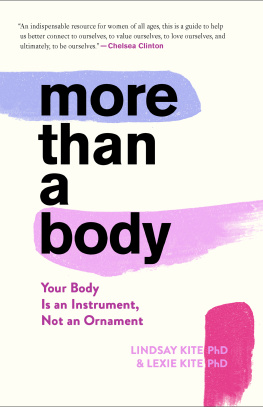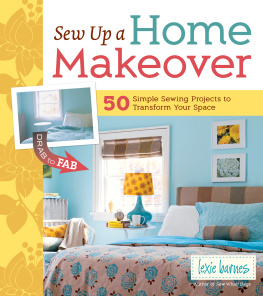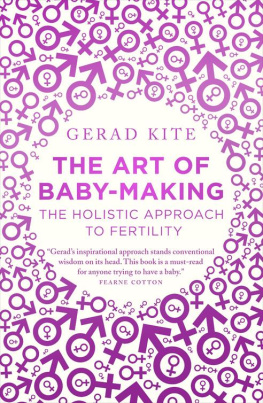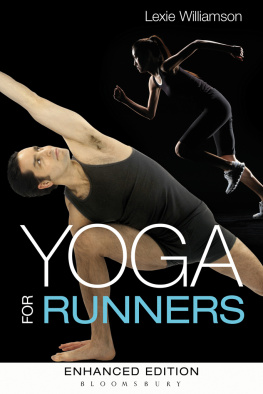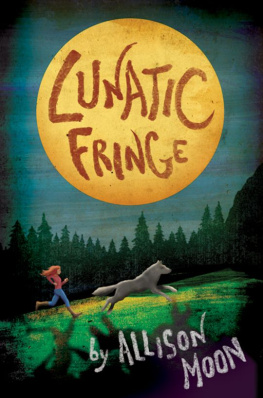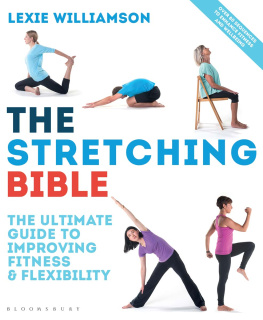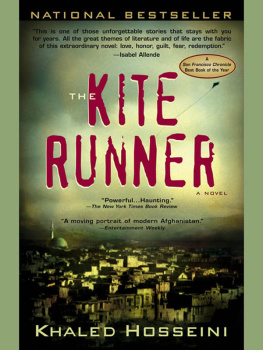Lexie Kite - More Than a Body
Here you can read online Lexie Kite - More Than a Body full text of the book (entire story) in english for free. Download pdf and epub, get meaning, cover and reviews about this ebook. year: 2020, publisher: HMH Books, genre: Romance novel. Description of the work, (preface) as well as reviews are available. Best literature library LitArk.com created for fans of good reading and offers a wide selection of genres:
Romance novel
Science fiction
Adventure
Detective
Science
History
Home and family
Prose
Art
Politics
Computer
Non-fiction
Religion
Business
Children
Humor
Choose a favorite category and find really read worthwhile books. Enjoy immersion in the world of imagination, feel the emotions of the characters or learn something new for yourself, make an fascinating discovery.
- Book:More Than a Body
- Author:
- Publisher:HMH Books
- Genre:
- Year:2020
- Rating:3 / 5
- Favourites:Add to favourites
- Your mark:
- 60
- 1
- 2
- 3
- 4
- 5
More Than a Body: summary, description and annotation
We offer to read an annotation, description, summary or preface (depends on what the author of the book "More Than a Body" wrote himself). If you haven't found the necessary information about the book — write in the comments, we will try to find it.
More Than a Body — read online for free the complete book (whole text) full work
Below is the text of the book, divided by pages. System saving the place of the last page read, allows you to conveniently read the book "More Than a Body" online for free, without having to search again every time where you left off. Put a bookmark, and you can go to the page where you finished reading at any time.
Font size:
Interval:
Bookmark:
Copyright 2021 by More Than a Body, LLC
All rights reserved
For information about permission to reproduce selections from this book, write to or to Permissions, Houghton Mifflin Harcourt Publishing Company, 3 Park Avenue, 19th Floor, New York, New York 10016.
hmhbooks.com
Library of Congress Cataloging-in-Publication Data
Names: Kite, Lexie, author. | Kite, Lindsay, author.
Title: More than a body : your body is an instrument, not an ornament / Lexie Kite, PhD, and Lindsay Kite, PhD
Description: Boston : Houghton Mifflin Harcourt, 2020. | Includes bibliographical references and index.
Identifiers: LCCN 2020034216 (print) | LCCN 2020034217 (ebook) | ISBN 9780358229247 (hardback) | ISBN 9780358393849 | ISBN 9780358393856 | ISBN 9780358226819 (ebook)
Subjects: LCSH: Body image. | Beauty, PersonalPsychological aspects. | Self-esteem in women. | Identity (Psychology)
Classification: LCC BF697.5.B63 K58 2021 (print) | LCC BF697.5.B63 (ebook) | DDC 306.4/613dc23
LC record available at https://lccn.loc.gov/2020034216
LC ebook record available at https://lccn.loc.gov/2020034217
Cover design by Allison Chi
Author photo Travis Bunderson
v1.1220
This book presents, among other things, the research and ideas of its authors. It is not intended to be a substitute for consultation with a professional healthcare practitioner. The publisher and the author disclaim responsibility for any adverse effects resulting directly or indirectly from information contained in this book.
No one experiences having their bodies and faces enthusiastically and unapologetically ogled, scanned, and compared by both strangers and loved ones like identical twins. We grew up without questioning this near-daily practice and learned to patiently wait and smile while people identified any supposed differences between us that would help them distinguish Lindsay from Lexie. Lindsay had the rounder face and straighter teeth. Lexie was a half inch taller and had a mole on her nose. Sometimes Lexie was thinner, sometimes Lindsay was, and this never went unnoticed (by ourselves or anyone else). A half pound and half inch difference between us at age nine was fodder for one of us to taunt the other with accusations of Fat pig! and other creative terms for being fat and ugly. Our mom would point out that we were being ridiculous since we looked exactly the same, but we each insisted that couldnt be true and that our sister was, in fact, a fat pig.
In middle school, we competed to see who could lose the most weight, eat the fewest carbohydrates, and exercise the most hours. In Lexies thirteen-year-old journal, she wrote, Lindsay and I made a contest. We will try to get more hours of exercise than the other. I think Im ahead of Lindsay by like 2 hours I hope. Next week Ill start on the dieting part. I hope I can stay on it. Were going to camp in like 26 days and I want to be skinny. Were gonna go swimming so I gotta look good in a swimsuit. Also, swim team is starting soon and I gotta be skinny and fit for that.
For as long as we can remember, we lived with a near-constant awareness and fixation on how we appeared. This was a result of others searching our bodies and faces for any detectable differences and commenting on them every single day, as well as the fact that we each were also visually scanning our own identical counterpart every day, watching how she looked from different angles and in different actions, effectively seeing our own appearances at all times. We didnt know this constant, critical awareness of the way we looked was noteworthy, let alone that it had a negative effect on our quality of life, self-esteem, relationships, and health. It took us until graduate school to find out that our constant mental body monitoring had hurt us and that it had a name, for twins and un-twinned people alike: self-objectification.
Self-objectification occurs when people learn to view their own bodies from an outside perspective, which is a natural result of living in an environment where bodies are objectified. We grow up seeing idealized and sexualized female bodies presented in media as parts for others viewing pleasure, even in the most mundane or unexpected circumstances. In 1975, film theorist Laura Mulvey coined the term the male gaze to describe the phenomenon of women being represented in media through the perspective of a heterosexual man, in which they are sexualized and depicted as passive objects of male attention or desire. This is objectification. We then learn to monitor and understand our own bodies from the same outside perspective. This is self-objectification.
When we are self-objectifying, our identities are split in two: the one living her life and the one watching and judging her. We become our very own self-conscious identical twin, an onlooker to ourselves, monitoring how we look rather than how we are feeling or what we are doing. We live, and we imagine how we look as we live, adjusting and contorting ourselves accordingly. We watch from afar as our bodies become our primary means of identity and value. Our feelings about and perceptions of our bodiesour body imagebecome warped into our feelings about how we appear to ourselves and others. We learn that the most important thing about women is their bodies, and the most important thing about womens bodies is how they look.
In our objectifying culture, in which a high priority is placed on appearance and in which some bodies are praised and valued while others are degraded and marginalized, your body imageyour feelings about your bodyis informed by a lifetime of messages tying a womans worth to her appearance. Those same messages define what it looks like to have an acceptable bodyfrom the roots in your hair to the color of your toenails. Your body image becomes something you perceive from the outside, like your critical twin onlooker. She is the little voice in your head whispering, Fat pig! while youre getting dressed or sitting in a classroom or boardroom deciding whether to raise your hand or speak up. She is the nagging checklist reminding you to suck in, fix your makeup, adjust your clothes, pose the right way, play up your best-looking parts, and on and on and on. For many people, learning about self-objectification leads to a serious aha! moment as they put a name to this invisible and unquestionedyet all-too-familiarexperience of body monitoring their days away.
Never is this split identity phenomenon more apparent than when we ask women and girls the simple question How do you feel about your body? So, lets start there.
If you were asked right at this moment how you feel about your body, what would you say? Dont twist your answer to fit a mold you think we (or anyone else) want it to fit, for better or worse. Just spill it. How do you feel about your body, and why do you think you feel that way?
Write out your feelings as thoroughly as you can in a journal or notebook or other safe spot. Do the same with the questions at the start of each chapter. Youll refer back to your responses later, and youll be glad you were honest and candid with yourself.
In our doctoral research among eighteen- to thirty-five-year-old women and in the online body image course we have offered for several years to girls and women ages fourteen and up, we started with that same simple question: How do you feel about your body? What weve found over and over is that when you ask women about their body imagein other words, how they feel about their bodiesyoull get a bunch of answers to a totally different question. Most will describe how they think they look, highlighting what they or others perceive as their worst flaws: belly rolls, love handles, cellulite, loose skin, flat chests, embarrassing bits to hide or fix. Its as if rather than being asked how they
Font size:
Interval:
Bookmark:
Similar books «More Than a Body»
Look at similar books to More Than a Body. We have selected literature similar in name and meaning in the hope of providing readers with more options to find new, interesting, not yet read works.
Discussion, reviews of the book More Than a Body and just readers' own opinions. Leave your comments, write what you think about the work, its meaning or the main characters. Specify what exactly you liked and what you didn't like, and why you think so.

